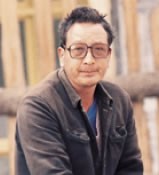Han Chinese, Wu in China

Photo Source:
Copyrighted © 2026
Operation China, Asia Harvest All rights reserved. Used with permission |
Send Joshua Project a map of this people group.
|
| People Name: | Han Chinese, Wu |
| Country: | China |
| 10/40 Window: | Yes |
| Population: | 81,039,000 |
| World Population: | 81,167,200 |
| Primary Language: | Chinese, Wu |
| Primary Religion: | Ethnic Religions |
| Christian Adherents: | 13.40 % |
| Evangelicals: | 10.00 % |
| Scripture: | Complete Bible |
| Ministry Resources: | No |
| Jesus Film: | Yes |
| Audio Recordings: | Yes |
| People Cluster: | Chinese |
| Affinity Bloc: | East Asian Peoples |
| Progress Level: |
|
Introduction / History
The Wu Chinese language is more commonly referred to as the Shanghai dialect, but in fact, Wu is spoken in a far greater area than just Shanghai. The Wu are counted as part of the Han nationality.
The Republic of China (1911-1949): Secret societies and triads were active throughout the Chinese countryside at the turn of the twentieth century. Local warlords effectively ran China. Discontent at foreign control over many parts of China led to the Boxer Rebellion in 1900, when more than 200 foreigners, mostly missionaries, were killed. The Boxers were themselves a secret society that originated in Shandong Province and stirred up anti-foreign sentiment throughout the land. In October 1911, Sun Yatsen set up the Republic of China and was promptly displaced as president by Yuan Shikai. Unrest in the countryside and economic chaos created a favorable environment for the Communist Party, headed by Mao Zedong. They won the hearts of China's oppressed peasants and waged a civil war against the Nationalists from 1927 to 1949. The Kuomintang army of the Nationalists was defeated and fled, along with the country's entire gold reserves, to Taiwan, from where they have claimed to be the rightful rulers of China until the present time.
What Are Their Lives Like?
The Wu people have faced grave poverty in the past, and many of them still do.
What Are Their Beliefs?
Most Wu Chinese do not practice any religion, although in recent years there has been widespread interest in the magical practice of Qi Gong.
There were Nestorian churches in the region between Nanjing and Shanghai as early as AD 1279. At one time, Nestorians had seven monasteries in and around the city of Zhenjiang, now in Jiangsu Province. In the 1800s, almost all missionaries to China commenced their work in Shanghai, which was the first port of entry for foreigners. This has resulted in the region having the highest concentration of Christians in all of China.
What Are Their Needs?
The Wu church needs to produce lasting fruit that will bless all of China.
Prayer Points
Pray for the Lord to do a new work among Wu people, drawing them to the King of kings.
Pray for the Lord to guide and protect Wu families.
Pray for the Lord to use Wu Christians as salt and light to those around them.